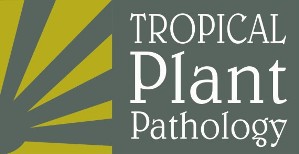Cercospora leaf spot (Cercospora beticola) is the most important disease of table beet in the world. In this study, the preventive application of chitosan or acibenzolar-S-methyl (ASM) to control the disease was evaluated, and the involvement of pathogenesis-related proteins in the plant-pathogen interaction was verified. Beet plants cultivar Early Wonder were sprayed with distilled water, HCl 0.05 N, chitosan at 2 mg/mL or 4 mg/mL and ASM at 25 mg/L, and 24 h or three days later, inoculated with the pathogen. Leaf samples were collected at different times after spraying and enzymatic activities were quantified spectrophotometrically. It was observed that chitosan and ASM reduced disease severity in table beet leaves by 76% and 68%, respectively, on the average of two experiments, and ASM promoted the accumulation of peroxidases and β-1,3 glucanases in beet leaves. Thus, both inducers reduce cercospora leaf spot in table beet, and the effect of ASM is associated with the activation of PR-proteins, whereas chitosan act by a still unknown mechanism.
Cercospora beticola; glucanases; peroxidases; phenylalanine ammonia lyase; resistance induction


